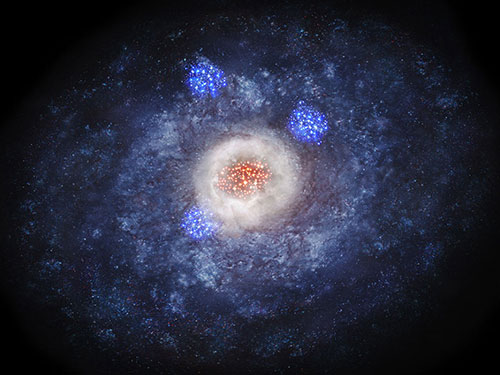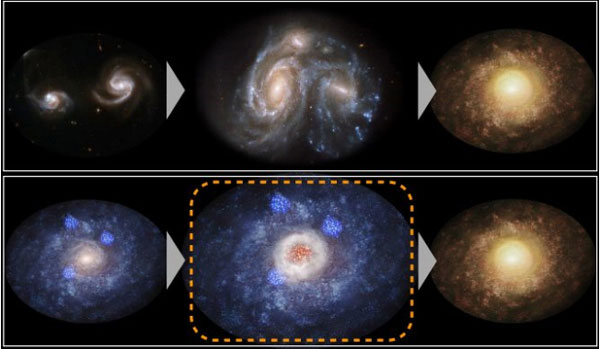News
New Growth Process Observed at Galaxy Center from 11 Billion Years Ago Updated in October 2017
An international team led by National Astronomical Observatory of Japan (NAOJ) announced that they were able to observe explosive new star-formations at the core of our galaxy around 11 billion years ago. The team was able to uncover this by using the world’s most high-performing telescopes. Galaxies were known to merge and grow into a larger one, but the research team was able to capture how a disk-type galaxy would eventually turn into a gigantic elliptic or oval one.
The team consists of Kenichi Tadaki, researcher for NAOJ and Max Planck Institute for Extraterrestrial Physics (MPE), Professor Tadayuki Kodama of Tohoku University Graduate School of Science (previously Associate Professor at NAOJ), and many other researchers from Japan, United States, Germany and other countries. The observational tasks had been shared among NAOJ’s Subaru Telescope situated in Hawaii, the United States’ Hubble Space Telescope and the ALMA Telescope operated in Chile by Japan, US and European countries. With these high-performance telescopes the team was able to observe far into the galaxy 11 billion light-years away and to analyze the obtained results
https://www.subarutelescope.org/
https://hubblesite.org/
https://alma-telescope.jp/news/press/galactic_metamorphosis-201709
Through observation and analysis of this study, the research team says that “this will be decisive evidence to show that there was another evolutionary process to the galaxy besides collision and integration among galaxies."


(STScl / AURA) - ESA / Hubble Collaboration, A. Evan, K. Noll, and J. Westphal, NAOJ)







